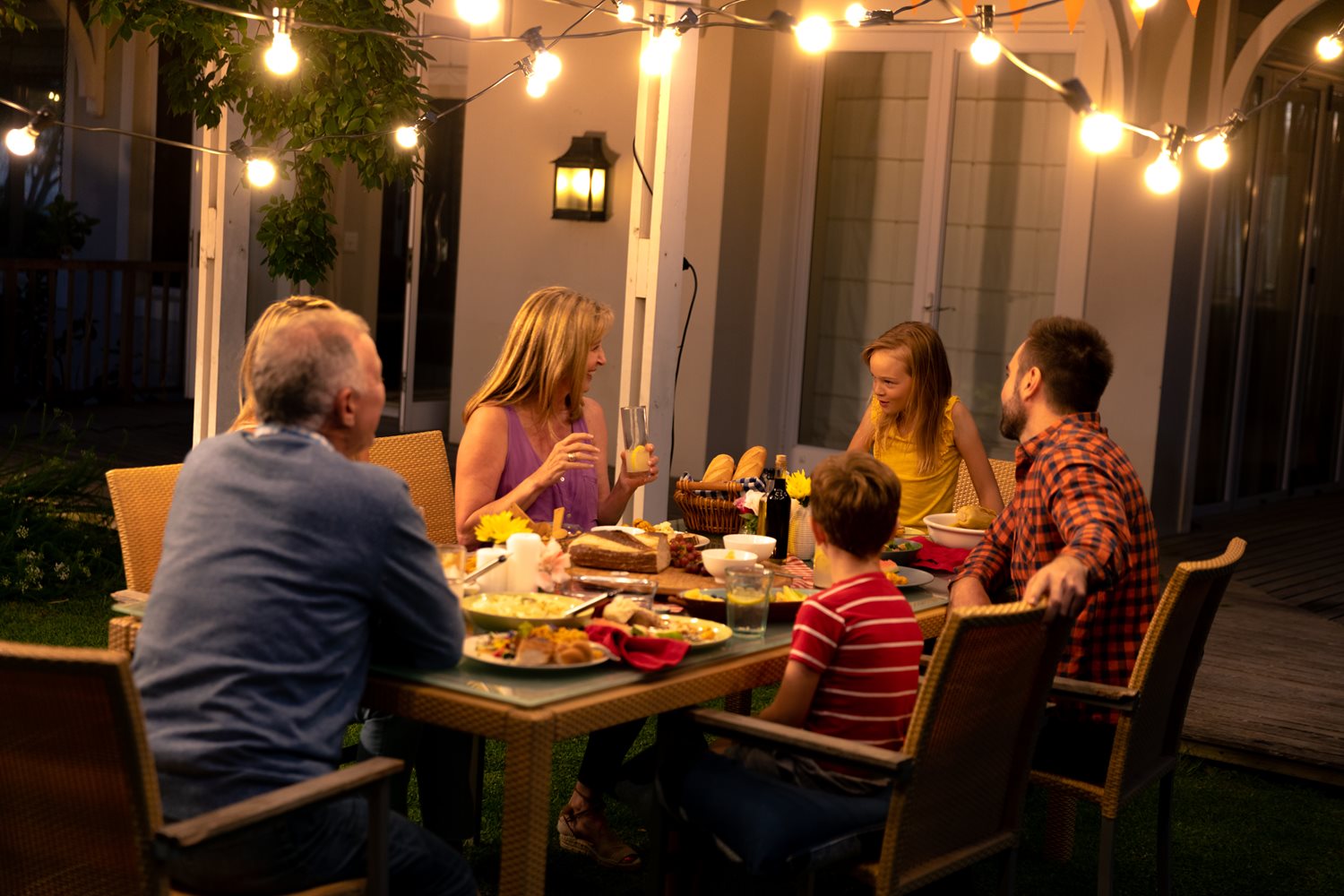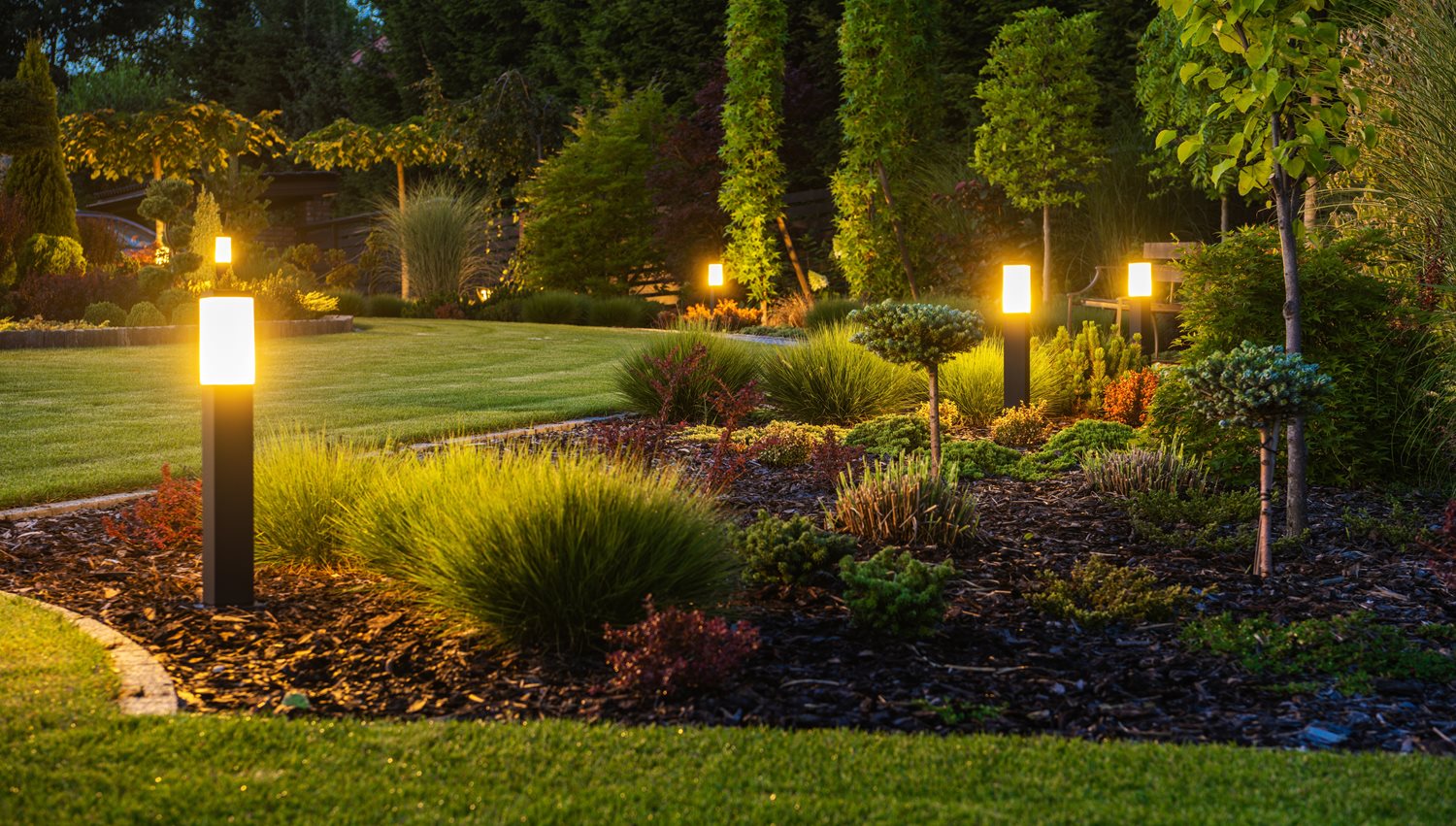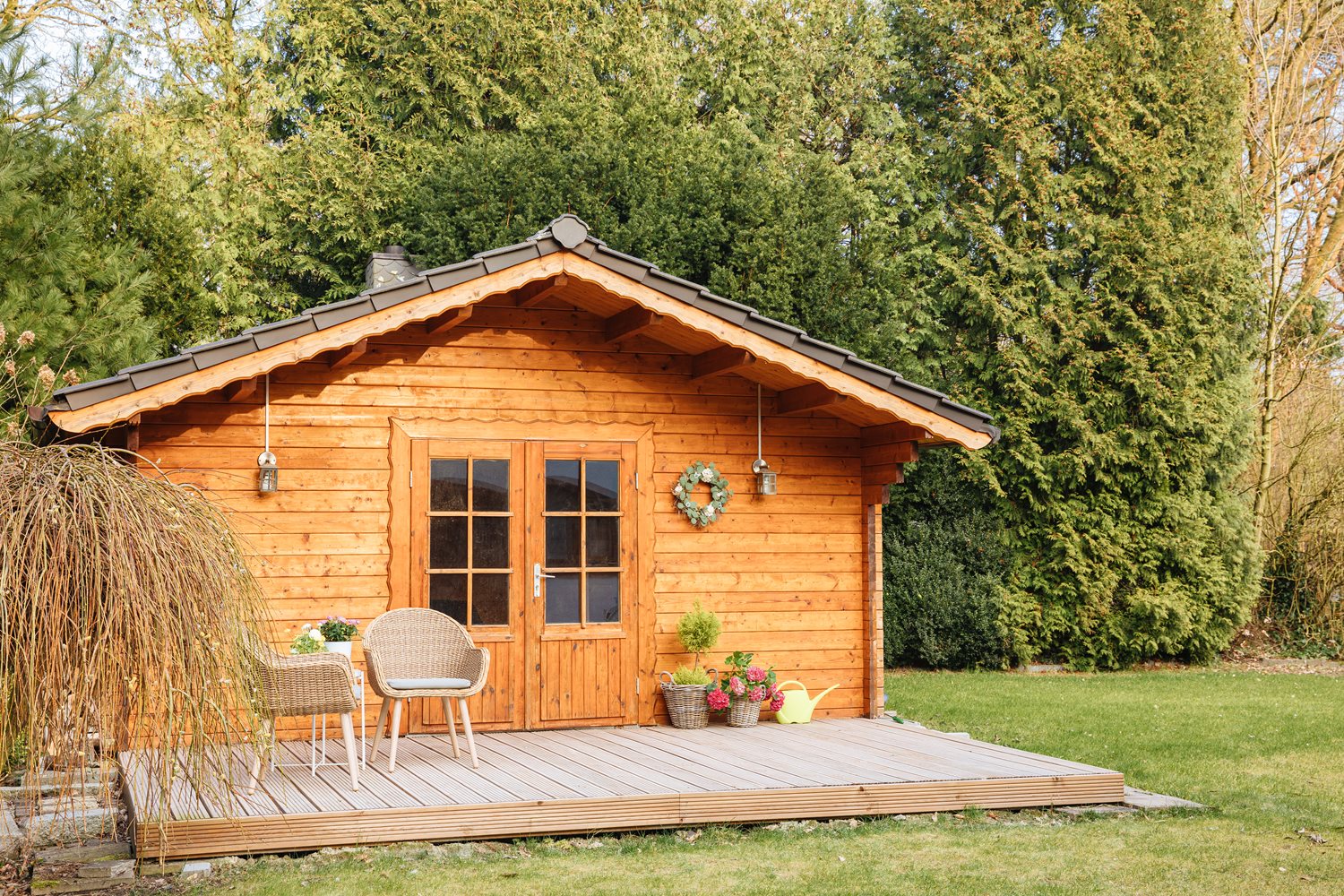For many people, keeping a beautiful garden is just as important as decorating their home’s interior.
There are so many ways to bring warmth and personality to your garden, for example:
- outdoor fairy lights or torches for the perfect evening ambience
- a hot tub for a touch of luxury when entertaining friends
- outdoor socket-outlets for gardening equipment such as lawnmowers and hedge trimmers
- electrics in your shed or outhouse to create a quiet office or hobby space.
However, when installing electrics – particularly in locations like your garden, where installations are likely to be exposed to the elements – it’s important to understand the various rules and regulations that must be followed to ensure high-quality, compliant installations that will keep you, your home, and your family safe.
And please remember that you should never attempt to do DIY electrics in any area of your home, and especially not in your garden due to the potential risks posed by exposure and wet weather. An NICEIC-registered electrician will have the knowledge, skills, and experience to install electrics safely in your garden, ensuring you can enjoy your outdoor space in safety and comfort throughout the year.
General garden safety tips

Whether you’re mowing the lawn, using a pressure washer to clean your patio, or blowing leaves in the autumn months, you’ll likely need electricity.
Here are some general safety considerations to be aware of when using electrical equipment or appliances outdoors.
- Ensure all appliances and electrical equipment, including outdoor socket-outlets and switches, are suitably waterproofed and protected by residual current devices (RCDs).
- Switch off and unplug any electrical items before cleaning, adjusting, or checking them.
- Keep any equipment that requires water, such as hoses, sprinklers, or paddling pools, well away from electrical equipment.
- Don’t cut the grass when it’s wet outside.
- Ensure all cabling is suitable for outside use and, where buried, that it’s installed at a sufficient depth to avoid damage from garden tools.
- Avoid using long extension leads for mains-voltage equipment, as this can lead to overheating and overloading, which can in turn increase the risk of electrical fires.
- Be careful when digging in your garden – you don’t know what cables or pipes might be buried underground.
Installing socket-outlets in the garden
Although there aren’t any specific regulations in BS 7671 – the national standard for electrical installations – governing electrics in the garden, there are some common-sense rules that all competent electricians will follow when installing socket-outlets in your garden.
All outdoor socket-outlets should be RCD-protected - a residual current device (RCD) is an enhanced safety device that cuts off the electricity when a fault is detected (for example, if you mow over your lawnmower cable). All outdoor sockets should be protected by an RCD to minimise the risk of electric shocks.
Socket-outlets installed outside should be weatherproof - all socket-outlets installed outdoors should have the correct IP (international protection) rating, meaning they’re adequately protected against water and dust. Most outdoor socket-outlets available for purchase have an IP rating of IP66 – meaning they’re dust tight and protected against heavy water jets. Socket-outlets with this IP rating will usually come with robust, plastic covers that can be tightly shut when not in use to protect against moisture, dust and debris.
Weather-appropriate cabling should be used - cabling used for outdoor socket-outlets should be suitable for outdoor use and, where necessary, buried at a sufficient depth to avoid damage from garden tools. This helps to protect the cables from environmental factors and physical damage, ensuring a safe and reliable electrical installation.
Wiring for outdoor lights

If you’re looking to introduce a bit of atmosphere into your garden, you can’t go wrong with outdoor lights. When purchasing your fittings, a good rule of thumb is to ensure they’re rated IP44 or higher, meaning they’re protected against splashing water and larger solid objects like pebbles and nails.
Some lighting, like solar or battery powered lights, don’t need to be wired in. Other types of exterior lights, like wall-mounted or motion sensor security lights, will need to be wired in by a professional electrician using special weather-resistant and durable cabling.
When planning your garden lighting, consideration should be given to Part L of the Building Regulations in England and Wales, which covers the energy efficiency requirements of buildings. This document states that:
- gardens should not be over-illuminated to avoid light pollution
- fixed external lights could have automatic controls that switch off in response to daylight and movement to save energy.
This avoids electricity wastage and ensures your garden lighting doesn’t disturb your neighbours.
Inconsiderate use of exterior lighting can be considered a statutory nuisance under the Environmental Protection Act and Clean Neighbourhoods and Environment Act, if the artificial light is considered to be distracting or prejudicial to health.
Installing electricity in your garden shed or outbuilding

Following the Covid-19 pandemic, working from home has become a common practice – leading many people to create their own dedicated office space in a shed or outbuilding. If you’re looking for an outdoor office space with all the mod cons, including internet, heating, light and – perhaps most importantly – a coffee machine, you’ll need electricity.
When bringing electricity to your shed, an electrician will typically run a cable from your home to the shed, either directly buried in the ground or via an underground conduit or duct.
If your current consumer unit or fuse box doesn’t have the capacity to power the additional electrical load your shed will require, they may recommend upgrading your existing consumer unit or installing a separate one to safely handle your shed’s power needs.
Once your shed has electricity, your electrician will then install all the socket-outlets, switches and light fittings you need to bring your new space to life.
Finding the right electrician for garden electrics
When looking for a professional to handle electrical installations in your garden, it’s important to verify they have the knowledge and skills to deliver high-quality outdoor installations that are safe to use, whatever the weather.
Using an electrician registered with a recognised certification body like NICEIC is a great way to ensure a quality job that complies with all the relevant rules and regulations. An NICEIC-registered electrician will have the necessary skills and experience to carry out electrical work safely and to the required standards, and their business will be regularly assessed to ensure compliance with industry regulations and best practices.
To find a trusted professional near you, use NICEIC’s Find a Trusted Tradesperson tool to submit your garden electrical job to multiple NICEIC-registered businesses for a quote.
However, under Part P of the Building Regulations in England and Wales, you do have to notify some garden electrical installations to your Local Authority Building Control for inspection and approval. This is to ensure the work is done properly and safely, in accordance with all the relevant rules and regulations. In Scotland, there are similar requirements for electrical installations that need a Building Warrant.
It can be quite costly to notify work to Building Control – but fortunately, there is another option. You can also hire an NICEIC-registered electrician who is certified on our competent person scheme, meaning they’re regularly assessed and deemed competent to self-certify their work as safe and compliant.
Your electrician will be able to tell you if your work falls under Part P (otherwise known as ‘notifiable work’) and, if required, provide you with a Building Control completion certificate that you can store for your records.
Electrical appliances and equipment designed for use in bathrooms or gardens will come with an IP (international protection rating) – the higher the rating, the better protected they are against dust and moisture. At a minimum, you’ll want equipment rated IP44. However, a lot of electrical equipment designed for outdoor use is rated IP66 and higher.
If in doubt, consult your electrician.
All outdoor socket-outlets should be protected by an RCD to help prevent electric shocks. This is due to the higher risk of accidental damage to cables or exposure to water when using power tools or appliances outdoors.
However, a better way would be to have outdoor socket-outlets installed (so you can plug in things like outdoor Christmas lights), or fixed lighting wired in for maximum convenience and safety. Remember that not all indoor socket-outlets are guaranteed to be protected by safety devices like RCDs, so you should always consult a registered electrician if you’re not sure.
Always purchase your outdoor lights and fittings from a reputable supplier and check they’re not damaged or broken before use.
